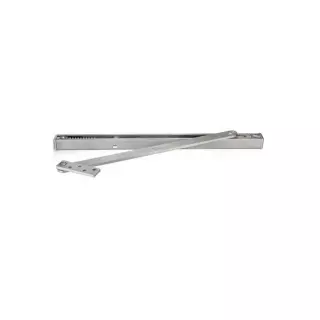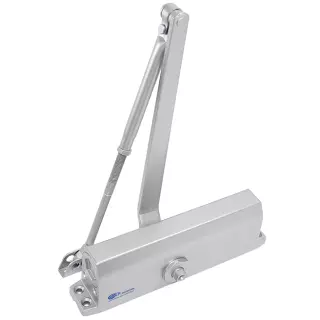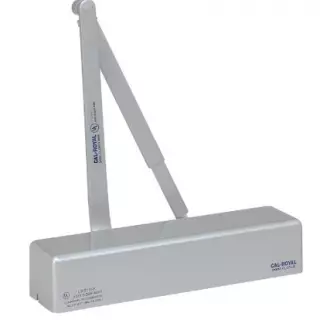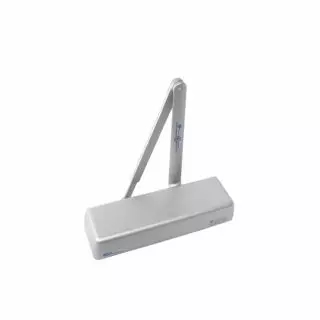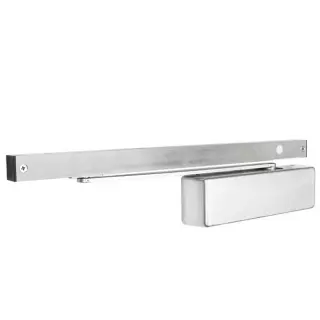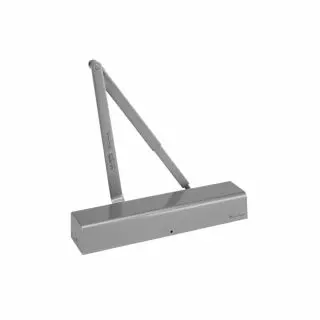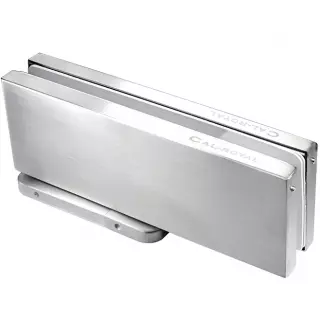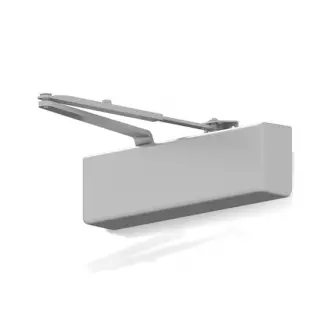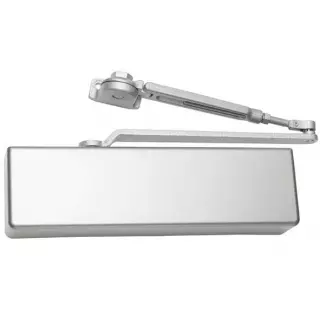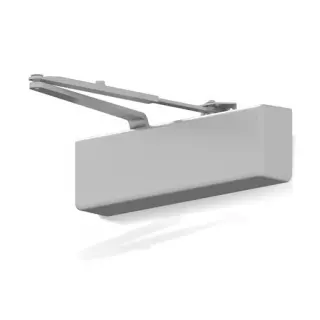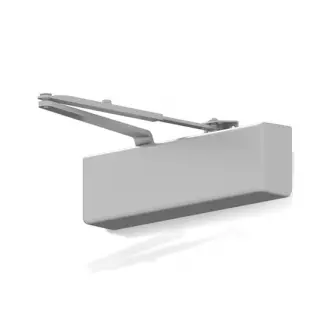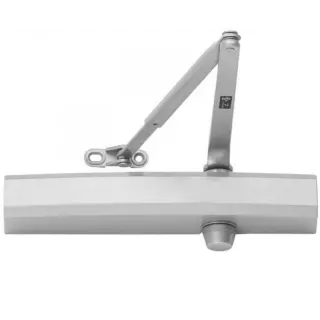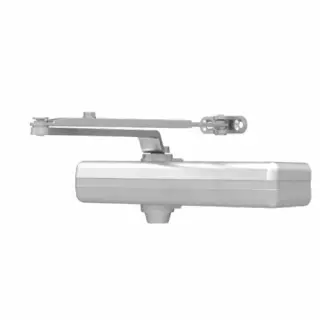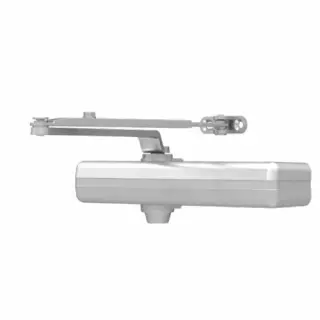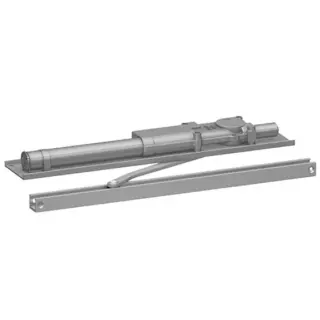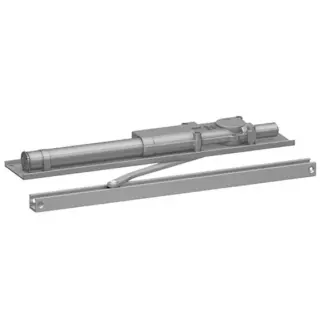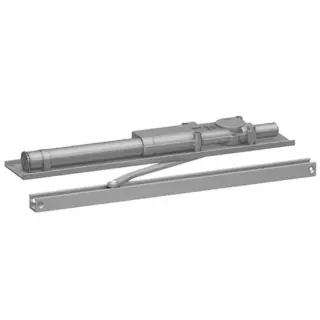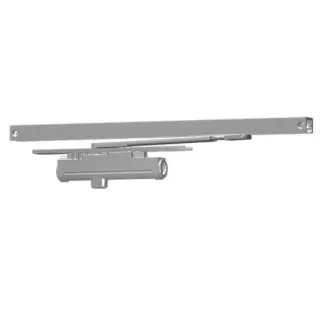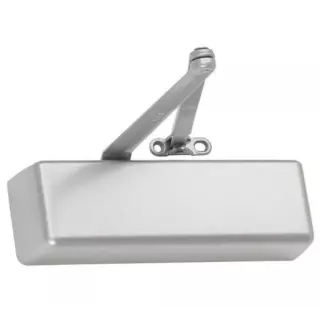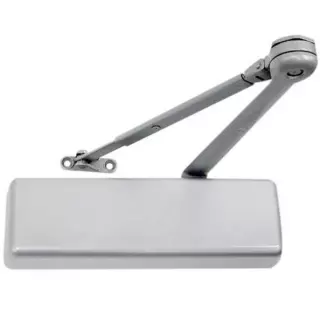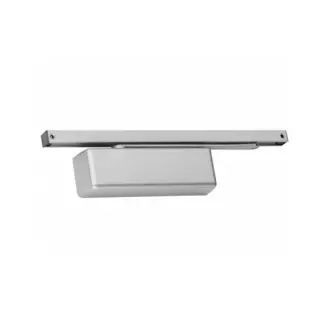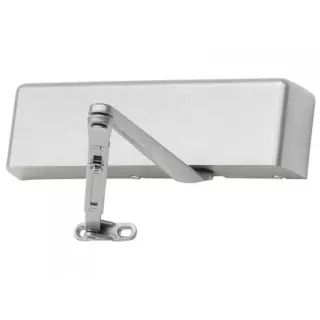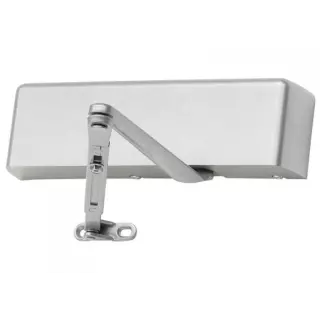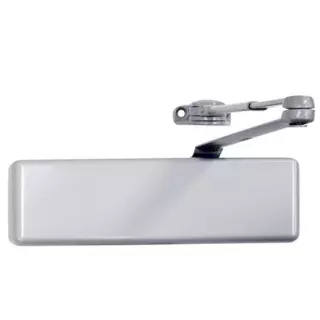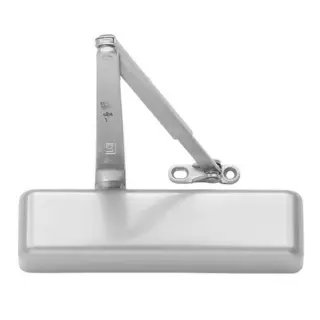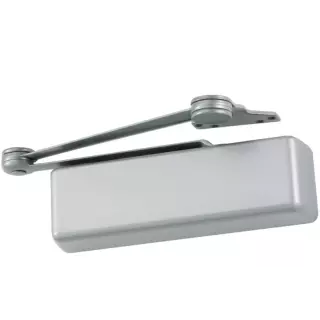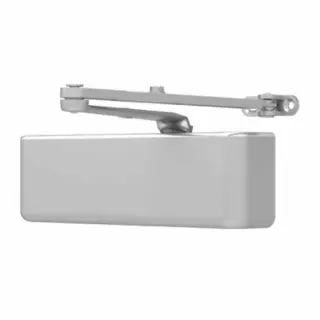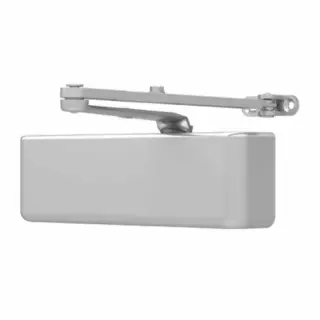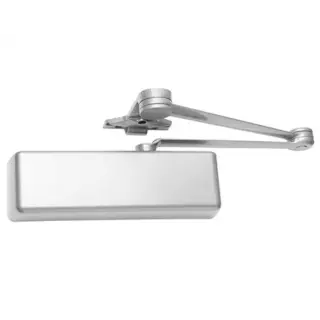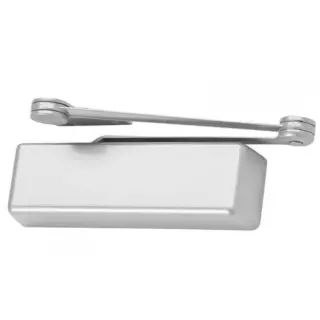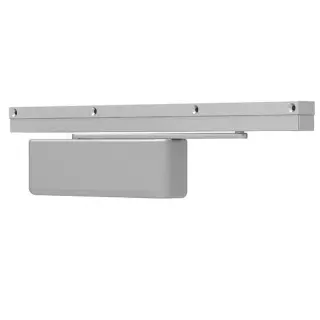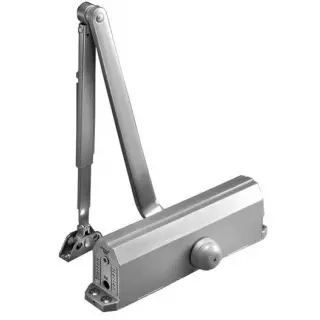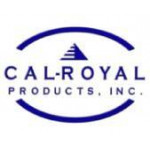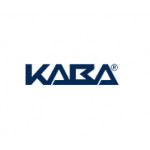Door Closers
Subscribe to RSS FeedHeavy-Duty Commercial Door Closers: Reliable and Durable
Choosing the right door closers can depend on a number of factors. It also highly depends on the preference of the customer, the manufacturer, and brands, and the build quality. You also have to consider the high price of some closers and the features they bring in. However, there is a list of factors that one should consider:
- The weight and size of the door
- Where the door is located
- The frequency of traffic
- Where the door closers have to be mounted
- The cost
- Backswing requirement
- Cal-Royal 300 Series Grade 1 Adjustable Door Closer with Full CoverAs low as $86.80
- Cal-Royal CR441 Series Grade 1 Door CloserAs low as $177.83
- Cal-Royal CR441EHO Door Closer with Electronic Hold-Open TrackAs low as $474.51
- Cal-Royal CR801 Grade 1 Adjustable Door Closer With Full/Slim CoverAs low as $120.50
- Cal-Royal DFG888 Grade 1 Concealed Glass Floor Door CloserAs low as $226.31
- LCN 1450 Rw/PA Surface Mounted Door CloserAs low as $156.00
- LCN 1461 CUSH Grade 1 Surface Door CloserAs low as $303.03
- LCN 1461 Grade 1 Rw/PA Surface Door CloserAs low as $210.92
- LCN 2034 STD Overhead Concealed Door Closer, Size 4As low as $777.64
- LCN 3133 Grade 1 STD Overhead Concealed Track Door Closer, Size 3As low as $392.04
- LCN 4011 Regular Arm Door Closer, Pull Side MountAs low as $330.93
- LCN 4011-H Door Closer with Hold Open Arm, Pull Side MountAs low as $367.00
- LCN 4021 Regular Arm Door Closer, Top Jamb Push Side MountAs low as $330.93
- LCN 4021H Door Closer with Hold Open Arm, Top Jamb Push Side MountAs low as $367.00
- LCN 4031 Hw/PA Door Closer with Hold Open ArmAs low as $350.65
- LCN 4031 Rw/PA Door CloserAs low as $307.36
- LCN 4040XP EDA Door Closer with Extra Heavy Duty Parallel ArmAs low as $377.59
- LCN 4040XP REG Heavy Duty Door Closer with Regular ArmAs low as $353.20
- Norton 1601/1601H Commercial Door CloserAs low as $130.20
What is the best commercial door closer?
Traffic considerations
The most important factor to consider is the volume of traffic that is to pass through the door. For medium to heavy-traffic places, overhead door closers are the most common option. They can be fitted on both exterior and interior doors. Moreover, they offer the durability that is required by the high traffic volume.
If the traffic is extremely high, then the more durable options are overhead spring closers or floor spring closers. They are a bit more attractive than regular overhead closers as they are not visible. On the other hand, if you need one for an interior door with medium to low traffic, then your best shot is frame-mounted and concealed door closers.
Building Code Considerations
You also have to take into account the build code considerations of the door closers. This increasingly varies on the amount of security you require from the products. Grade 1 closers are the most secure, followed by Grade and Grade 3. Ensure that you get the right one for your commercial property so your doors are accurately secured.
Aesthetic Considerations
Last but not least, you have to consider the aesthetic appearance of the door closer. Doors are the first thing people interact with on your commercial property. Therefore, it is important for them to look good and go with the brands' outlook. There are some with better looks than the others, but each has its own pros and cons.
There is no single commercial door closer that is best for everyone. You have to consider each and every single factor and requirement. Once done, you can make an informed decision, saving cost and getting a durable door closer.
How do you adjust door closers?
To adjust your door closer, examine it and figure out whether it has a cover or not. Sometimes the cover hides the adjustment screws. The cover is either made out of plastic or metal or aluminum. It is either screwed onto the closer or simply held on by tension. Once the aluminum cover is off, you need to:
- Check for oil leakages. If there is leakage, you need a new door closer. If not, then,
- Follow the instructions given around adjustment screws with rights reserved. If there aren’t any, you would have to follow the hit-and-trial method to figure out which one does what.
- Don’t turn the adjustment screws too much at once as too little can do a lot. In order to slow the closer, turn the screws clockwise. Move them anti-clockwise if you wish to speed it up.
- Once adjusted, test the door by closing it at least ten times.

